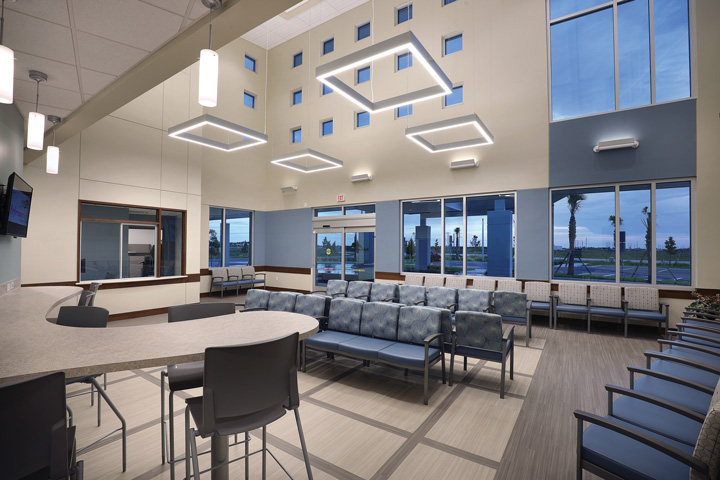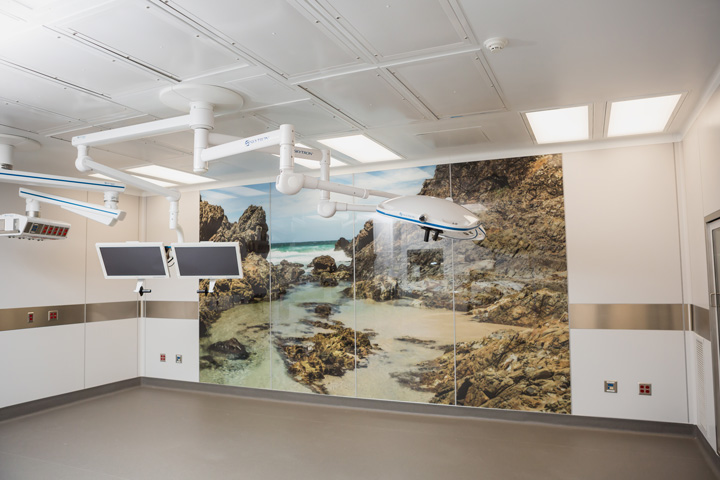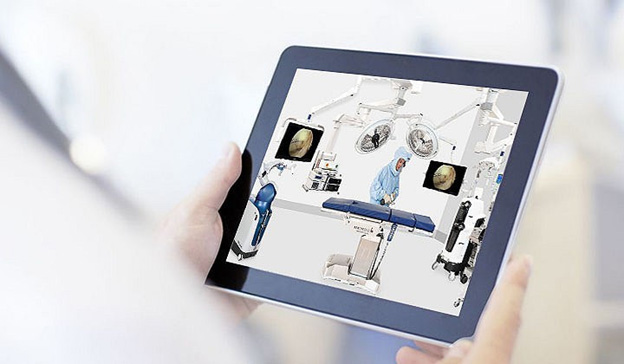Performance Health Surgery Center is built to evolve over time as well as pivot to address short-term needs.
 READY FOR TAKEOFF The high ceiling of the waiting area at Performance Health Surgery Center, inspired by planes taking off at a nearby airport, features strategically hung lighting fixtures that reduce its scale, helping patients and their caregivers feel both inspired and cozy. | Hardaway | Sziabowski Architects
READY FOR TAKEOFF The high ceiling of the waiting area at Performance Health Surgery Center, inspired by planes taking off at a nearby airport, features strategically hung lighting fixtures that reduce its scale, helping patients and their caregivers feel both inspired and cozy. | Hardaway | Sziabowski Architects
To stay competitive over time, it helps if the ASC you build today can grow and change to fit the evolving needs of patients and surgical teams years down the road. Performance Health Surgery Center in Fort Myers, Fla., is one such ASC. Equipped to handle outpatient orthopedic, spine and total joints cases today, it’s strategically designed to expand to accommodate the needs of tomorrow.
The four-OR multispecialty ASC is a 14,700-square-foot space housed in a 17,000-square-foot medical building. However, the surgery center was strategically designed by veteran firm Hardaway | Sziabowski Architects of Newton, Mass., to include expansion space for adding not only additional ORs, procedure rooms and recovery spaces, but also an extended care center for overnight stays. The ASC even retains the option of leasing the extra space to another tenant.
The ORs, two at 600 square feet and two at 400 square feet, are equipped with state-of-the-art capital equipment and connection capabilities. The racetrack style pre-op/PACU is cleverly designed to enable all its stations to function as either pre-op or recovery stations depending on what is needed. The dual-function stations include curtained and semi-private bays as well as private rooms.
The ASC’s sterile processing and storage spaces are strategically arranged behind the ORs with connection to each of them. This provides a one-way traffic flow for efficient instrument prep and throughput, which enhances the center’s patient safety and infection prevention efforts.
The architectural firm wasn’t solely focused on expansion, adaptability and workflow, however. It also integrated high-concept, patient-pleasing design.
When the architects originally visited the facility site, they noticed it was in the flight path of the nearby regional airport. The jets soaring above oriented their design focus upward.
As a result, the ASC’s waiting room is a lofty double-height space with pendant lights intentionally suspended to help reduce patients’ perception of its scale, enhancing feelings of comfort while eliminating the feeling of sterile claustrophobia that characterizes many traditional waiting areas. Its soothing color palette adds to that warm, comfortable experience.
.svg?sfvrsn=be606e78_3)



.svg?sfvrsn=56b2f850_5)